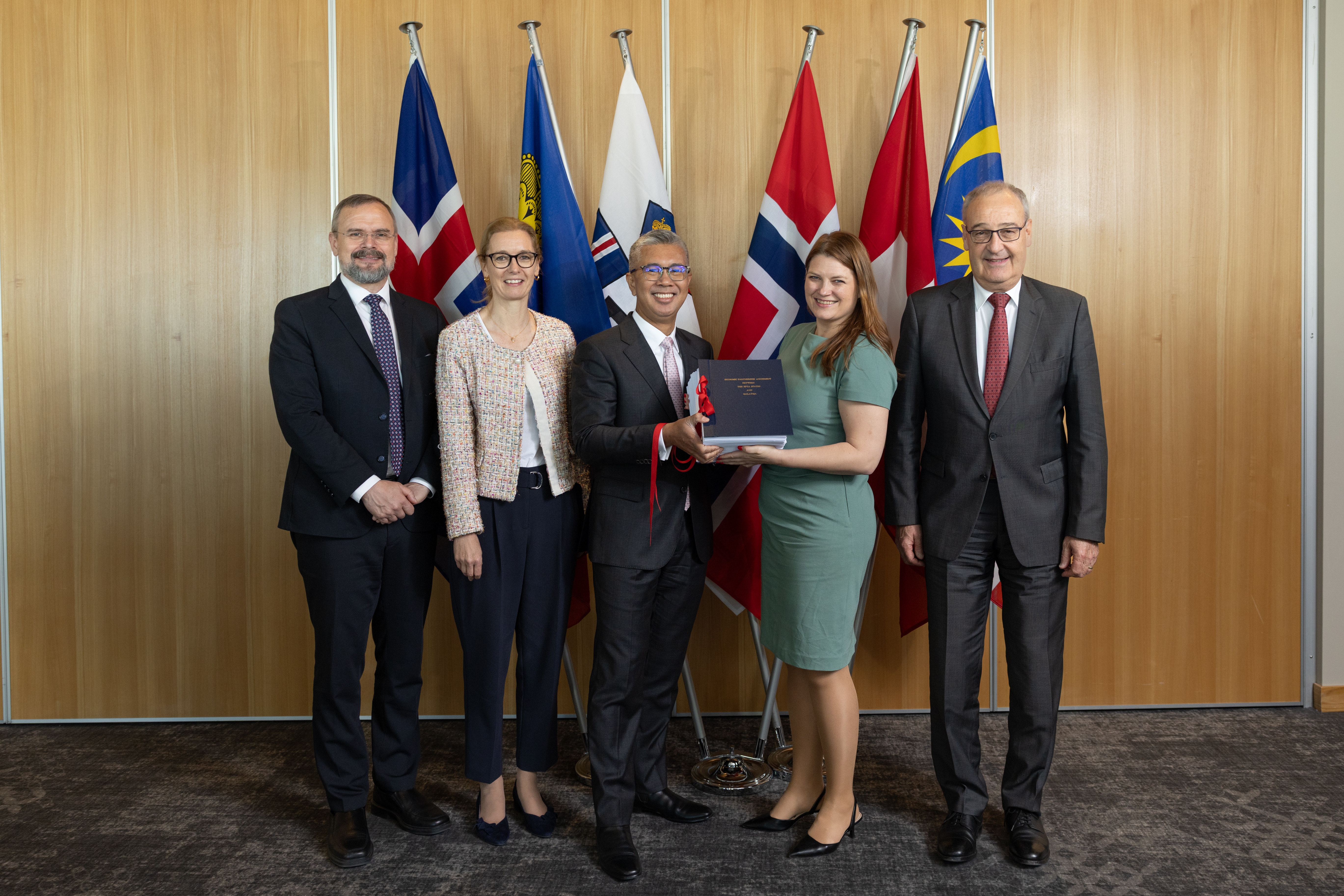The agreement offers opportunities for economic cooperation and trade to grow further, and enables stakeholders on both sides to achieve valuable tariff savings. The parties also signed a Memorandum of Understanding on Cooperation and Capacity Building and a Joint Statement on Sustainable Palm Oil.
The Economic Partnership Agreement (MEEPA) was signed by Minister of Investment, Trade and Industry of Malaysia Tengku Datuk Seri Utama Zafrul Aziz, Minister of Trade of Norway and current EFTA Chair Cecilie Myrseth, Minister of Finance and Economic Affairs of Iceland Daði Már Kristófersson, Deputy Prime Minister of Liechtenstein Sabine Monauni, and Vice President of Switzerland Guy Parmelin.
Following the signing ceremony, Minister Myrseth thanked all parties for making the conclusion of negotiations possible:
“At a time when the international trading system is under pressure, the signing of the Economic Partnership Agreement between the EFTA States and Malaysia is a powerful statement of our shared commitment to open, rules-based trade. It strengthens our economic ties, supports sustainable growth and provides opportunities for businesses and workers on both sides.”
Minister Tengku Zafrul of Malaysia said:
“This Economic Partnership Agreement represents more than just a trade agreement. MEEPA is a powerful tool for Malaysia and the EFTA States to enhance our bilateral trade and investment partnership, while strengthening our resilience in the face of global challenges. The signing of MEEPA is only the beginning. Together, our priority must be to fully operationalise this agreement and maximise its potential by facilitating greater collaboration between our governments and businesses.”
The EFTA–Malaysia Economic Partnership Agreement is an ambitious and broad-based agreement covering trade in goods, services and investment. Furthermore, this milestone agreement includes areas such as economic cooperation, trade and sustainable development, intellectual property rights, rules of origin, competition, trade facilitation, government procurement, sanitary and phytosanitary measures, and technical barriers to trade.
Key EFTA exports to Malaysia in 2024 included machinery and mechanical appliances, pharmaceuticals, electrical machinery, precision instruments, and clocks and watches, while key Malaysian exports to the EFTA States in 2024 included machinery and electrical equipment, optical and scientific instruments, metal products, plastics and rubber-based products.
Joint communiqué
EFTA - Malaysia
Photos
